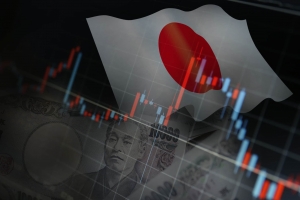Japanese Taxes: A Complete Guide for Expatriates
Have you recently arrived in Japan to live and work?
From the moment you start receiving income as a foreign national in Japan, tax will be deducted from your earnings.
No surprises there!
But how much do you really know about your Japanese tax entitlements and responsibilities?
The Taxback team have put together this handy guide to cover everything about income tax in Japan for foreigners.
In this guide we will cover:
- How to determine your Japanese tax residency status
- Paying the right amount of tax
- Tips for filing your tax return
- How to claim a tax refund
- And much more
And remember, if you have specific questions about your Japanese tax obligations, our Live Chat team is online 24/7 to support you.
Starting work in Japan - what visa should I apply for?
To test the waters before moving there, you can always apply for a short-term visa, to see if you would like Japan. This will allow you to visit for up to 90 days.
Countries that do not require a short-term visa for business or leisure purposes include Canada, USA, UK, New Zealand, Australia, Hong Kong, Korea, and nearly all European countries.
However, you'll need a long-term Japanese visa to stay longer than 90 days.
If you are moving to Japan for work purposes, you will need a work visa.
Citizens from certain countries can also apply for a working holiday visa in Japan.
Citizens from these countries can apply for a working holiday visa in Japan:
A working holiday visa will allow you to stay in Japan for up to six months, which can be extended two more times, each up to six months.

Your tax residency status
How can you determine your Japan tax residency status?
There are two types of residents for tax purposes in Japan:
A non-permanent resident is someone who is not a Japanese national and has also spent less than five years but more than one year in Japan over the space of the last ten years.
A permanent resident is a Japanese citizen and has spent over this amount of time in Japan in the previous ten years.
If you moved to Japan from a different country you are likely going to be deemed a non-permanent resident.
However, you'll be considered a non-resident if the two above categories do not apply to you.
As a non-permanent resident, you will pay tax on any income except income that you earned while abroad and is not sent to Japan.
The amount of tax you have to pay will depend on some personal circumstances, such as your income and marital status.
You must file a tax return in Japan if:
- You leave the country before the end of the tax year
- Your tax is not withheld
- You worked for more than one employer
- You earn more than ¥20,000,000 annually
- Your side income is in excess of ¥200,000
Tax obligations in Japan
The Japanese tax year
The Japanese tax year runs from 1 January to 31 December.
How much tax you will pay in Japan depends on different factors, such as income earned and your residency status.
Remember, you'll be considered a non-permanent resident in Japan if you spent less than five years but more than one year there.
Japanese tax rates
The amount of Japan income tax you'll pay depends on a variety of factors, primarily your residency status in the country.
Here is how much each tax resident will pay in Japan:
Non-Resident
Someone living in Japan for a year or less will not be deemed to have a primary base of living in Japan. Therefore, non-residents will pay tax on income earned from sources in Japan only, not on income from abroad.
Non-Permanent Resident
A person deemed a non-permanent resident will have to pay Japan income tax on all income except on income that does not get sent to Japan (i.e. from abroad).
Permanent Resident
Permanent residents will pay tax on all income earned both from Japan and abroad.
Rates of tax to be paid
Each prefecture in Japan requires their workers to pay 4% on all of their income.

Nenmatsu Chosei / Gensen Choshuhyo - The year-end tax adjustment declaration
Nenmatsu Chosei is a way of calculating the excess of your income tax by comparing the income tax paid by you for the tax year and the income tax deducted from your monthly wages.
Essentially, it will show if you are due a tax refund or if you have underpaid tax.
If you have an active address in Japan/have been living in Japan for a year or more, you are subject to year-end tax adjustment. This is because your tax obligations are similar to Japanese residents.
As for Gensen Choshuhyo, this is a form that is given to you by your company near the end of the tax year. It will outline the total amount you were paid and how much income tax you paid also.
Japanese pension payments
When you are earning income in Japan, you will likely have to pay money into the Government's National Pension Scheme.
That is due to the fact that anyone working in Japan is by law to pay a contribution to a pension insurance fund directly from their wages.
The contributions you pay usually amount to around 11% of your earnings. However, the exact amount depends on whether your employer has a private social insurance plan set up or if you are paying into the public Government's
National Pension Scheme.
You will be entitled to claim a pension refund from Japan if:
- You're not a citizen of Japan
- You paid into the scheme for six months or more
- You apply within two years after leaving
20.42% income tax will be taken from your total refund. However, not many non-residents know that they can also claim part of this 20.42% back once they receive their refund!
The average Japanese pension refund for Taxback.com customers is ¥600,000. Claim yours back today!
Apply for Your Japanese Pension Refund Now
Filing a tax return
The Japan tax year runs from 1 January to 31 December. So, if you want to file for the 2023 tax year, you should file after 1 January 2024.
Preparing a tax return can be confusing and complicated, especially when you are dealing with the tax laws in an unfamiliar country.
At Taxback, we have specialists who are experts in Japanese tax laws, so we can file your Japanese tax return for you!
Filing tax return in Japan is the only way to claim your MAXIMUM Japanese tax refund!
After all, we have been dealing with Japanese tax since 1996, so safe to say we know a thing or two about what we are doing!

Japanese tax refunds
Am I due a tax refund from Japan?
You could be due a Japanese tax refund for many reasons. For example, it's likely you are due tax back if:
- You worked there for a year or more
- You are married
- You have dependants
Remember, if you paid into a pension plan fund during your stay in Japan and have left the country, we can get that money back for you as well!
The average Japanese pension refund a customer with Taxback receives is ¥600,000.
What do I need to apply?
To claim your tax refund from Japan you may be asked for any of the following:
- Your Gensen-Choshu-Hyo (this is a statement of income and tax paid from your employer)
- Official ID
- Pension book copy or pension number
When I apply, how much tax will I be due back?
Put simply, that depends on personal circumstances!
Things that influence how much you could be due back include how long you stayed in Japan and how much income you received.
The average Taxback customer will receive ¥111,000 when they apply for their refund. But you could be due much more!
We have a specialised Japanese tax calculator to find out how much tax refund you are due.
Why choose Taxback?
That's simple! We offer a wide range of services, including:
- A live chat team available 24/7 to answer your queries
- Maximum Japanese tax refund guaranteed
- Easy and fast online service, you can sit back while we get your money for you!
Get started now - apply for your Japanese tax refund today!




